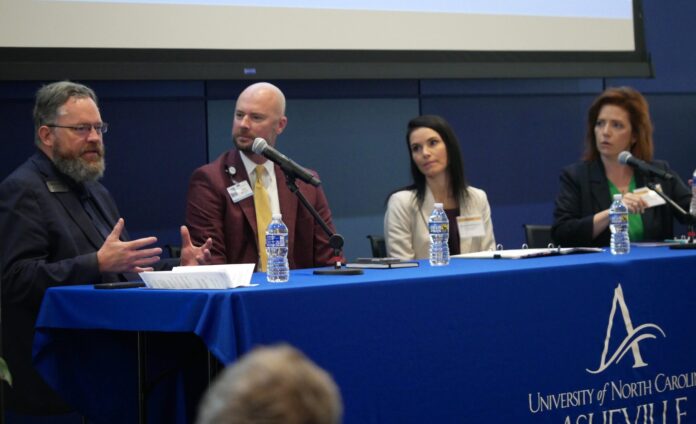Health care employers in Western North Carolina joined the multiple sectors calling for child care solutions at a legislative summit at UNC-Asheville earlier in March.
“What we know in this region, as health care organizations, is that there are highly trained, skilled professionals that are not working,” said John Bryant, vice president of operations and support services at UNC Health Pardee in Hendersonville. More than half of those professionals contacted by the organization say child care is the reason they are not working, Bryant said.
“We must look for more than temporary fixes in a sustainable, private-public approach that treats child care as an essential infrastructure,” said William Hathaway, CEO of Mountain Area Health Education Center.
Employers from several industries have been increasingly vocal this year about the need for both public and private child care solutions. Early in this legislative session, the NC Chamber Foundation released a report with employer-focused policies that would expand access for working parents, as well as public policies that would expand access for the entire state.
Seven state legislators attended the summit at UNC-Asheville, along with staff representatives from two additional offices.
The summit, hosted by the WNC Health Policy Initiative, the WNC Early Childhood Coalition, the YMCA of Western North Carolina, and Verner Center for Early Learning, also featured health care representatives from Mission Health and AdventHealth Hendersonville.
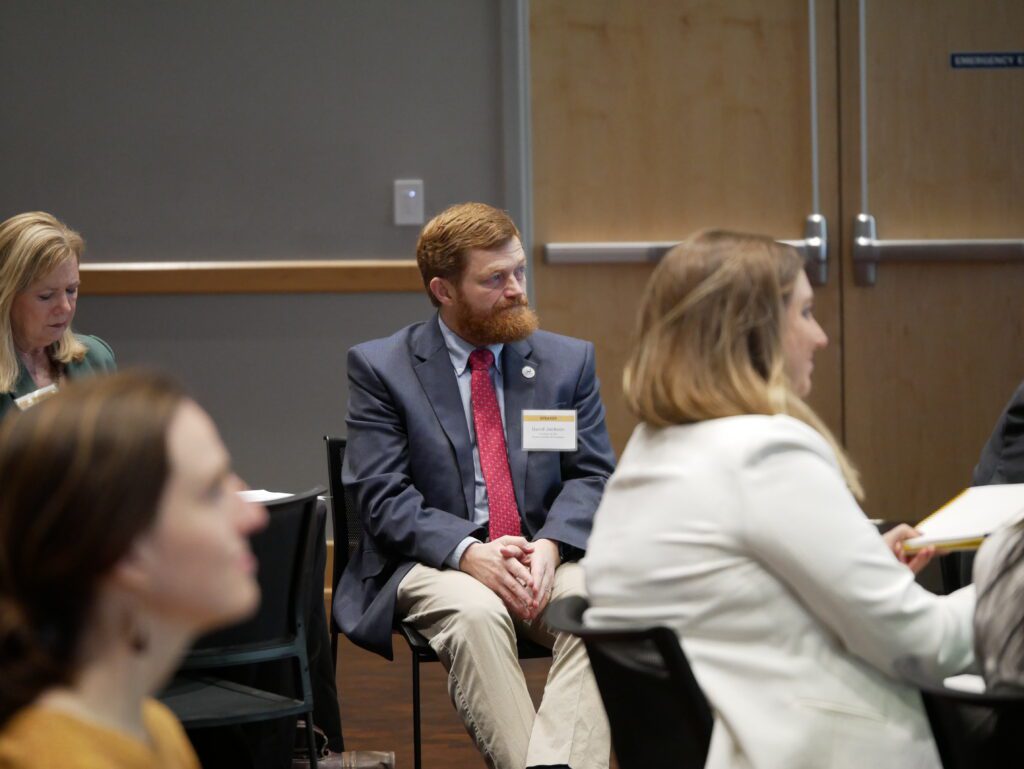
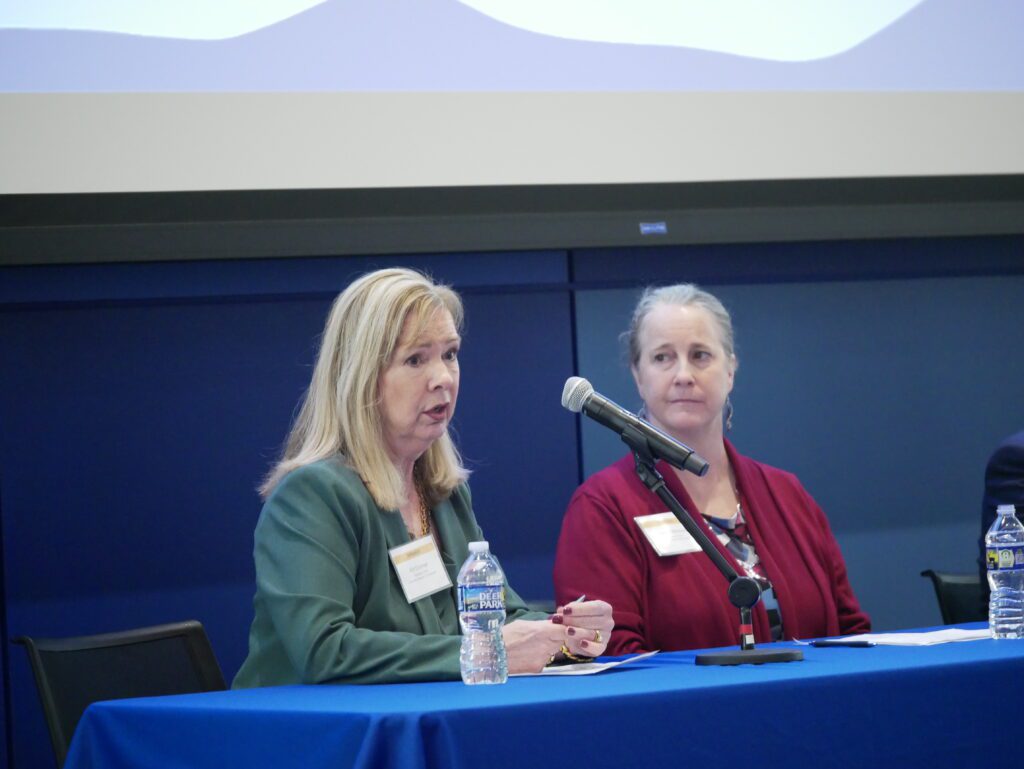
Some businesses are taking matters into their own hands by hosting on-site child care programs, providing employees with vouchers, donating funds to local efforts, and participating in programs like Tri-Share. Local efforts are working to expand care and lower costs for families.
These efforts aren’t enough on their own, summit panelists said.
Mission Health hosts an on-site child care program, for example, through a partnership with Bright Horizons, a national child care chain. The partnership makes the difference between working and staying home for many of their employees, said Renee Klimkiewicz, human resources director at the company.
“But again, then you go out into the region, and now we’re in a child care desert,” Klimkiewicz said.
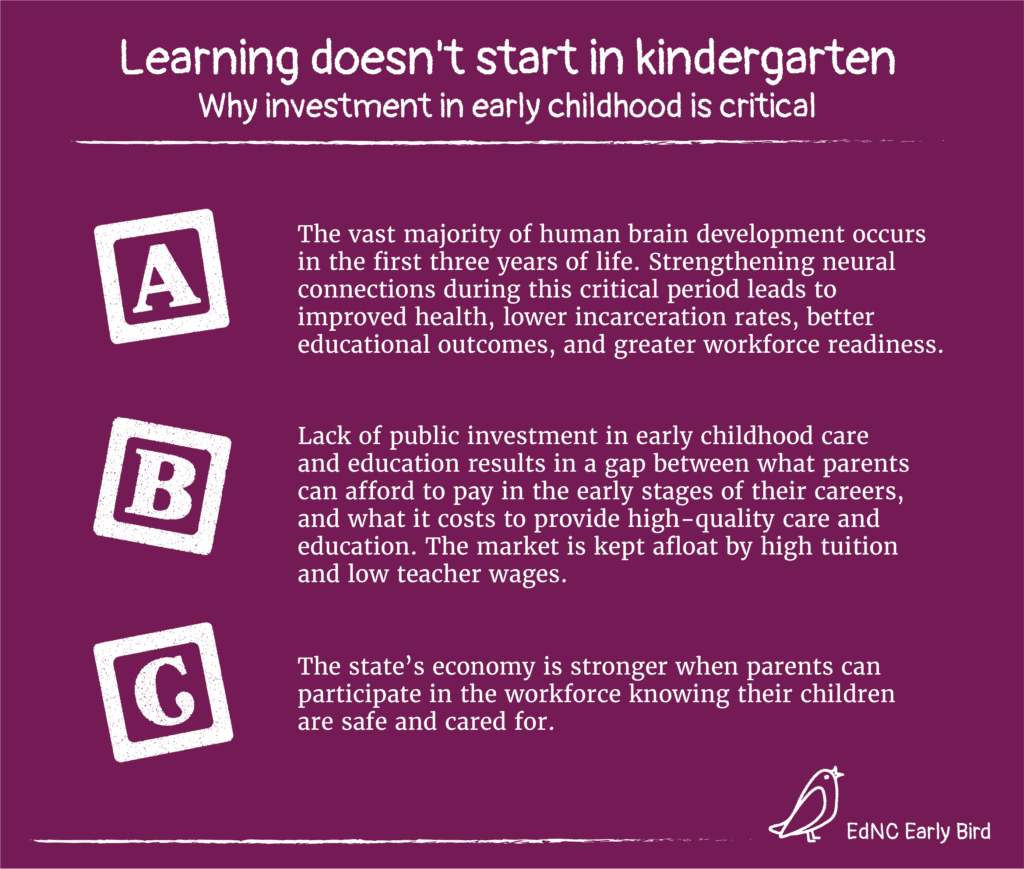
Insufficient child care is hurting both recruitment and retainment, panelists said. AdventHealth Hendersonville’s leaders are looking to expand their team from 1,800 to 2,800 employees in the next 18 months, but they are concerned about flexible child care options for their current and future staff, especially in more rural areas, said Victoria Dunkle, the organization’s communications director.
“We’ve got a lot of husband-wife teams or spouse teams at our hospital who are both working a 12-hour shift each, and that creates a serious concern,” Dunkle said.
Advocates and business leaders shared legislative strategies that could make a big difference for families and employers.
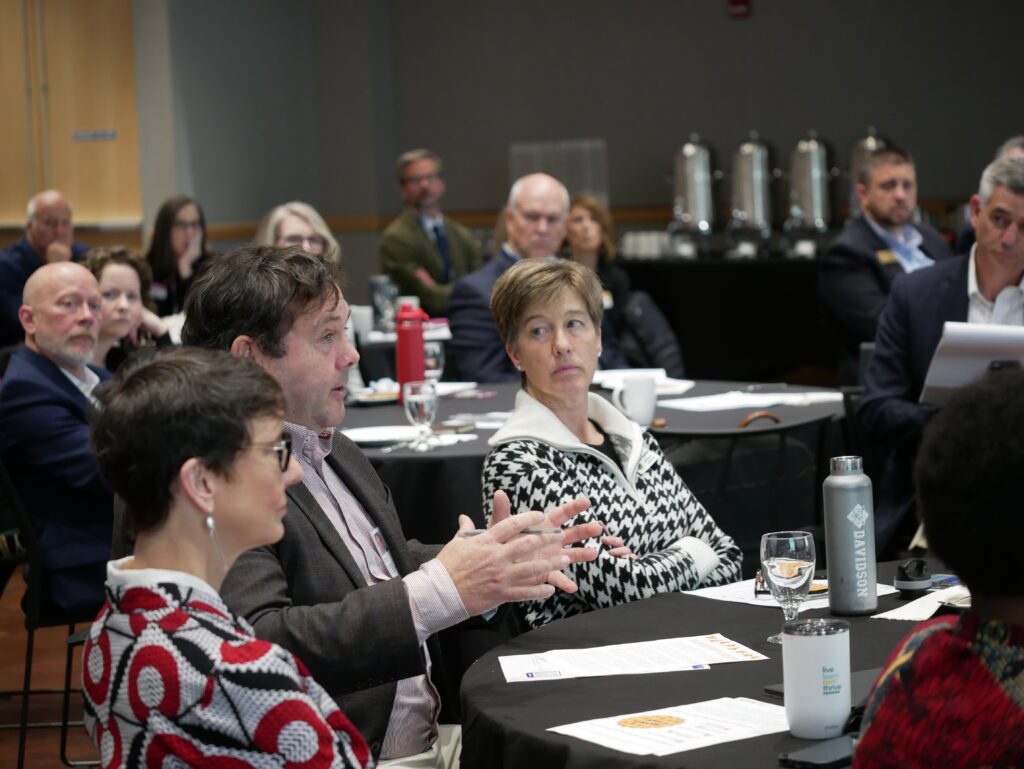
Marcia Whitney, president and CEO of Verner Center for Early Learning, pointed to two policies backed by advocates this year: a subsidy floor rate and free child care for child care teachers.
The floor rate would help providers in rural counties sustain their businesses by increasing the amount they receive to participate in the subsidy program. Child care support for child care teachers is a strategy, created by Kentucky in 2022, to retain child care workers, who make some of the lowest wages of any industry.
Child care teachers’ median starting wages were $14 an hour in 2023, with the starting median wage for an assistant teacher at $12, a study from Child Care Services Association (now Early Years) found.
“Parents are paying too much for care; teachers are not making enough,” Whitney said. “And the missing piece is other partners who can join with us, be it from public sources, from corporate sources.”
‘Helene recovery is a child care story as well’
Hurricane Helene’s aftermath has underscored the need for sustainable child care, panelists said.
“In an absolute crisis, it was, ‘I’ll come help, but I need child care,’” Bryant said of the conversations the company had with employees in the days after the storm.
Child care providers, who were impacted themselves, moved to temporary locations and scrambled to open their doors as quickly as possible.
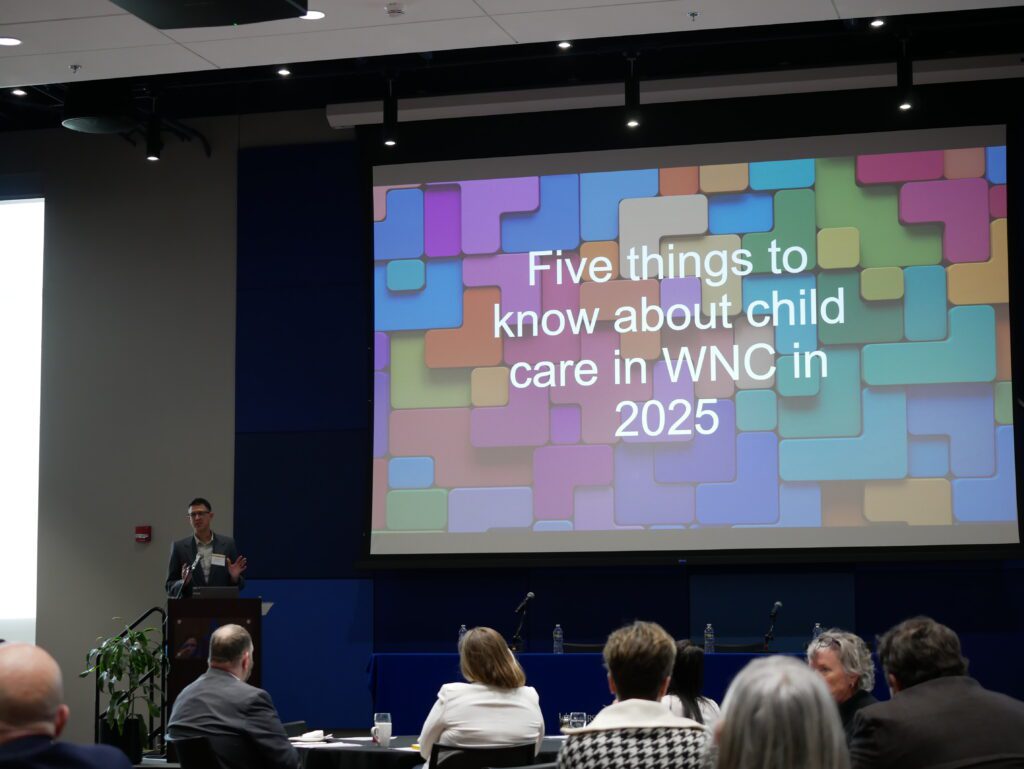
“Helene recovery is a child care story as well,” said Greg Borum, director of the WNC Early Childhood Coalition.
All but three of the 820 licensed child care programs in 25 impacted counties survived the storm’s damage, according to information from the state Division of Child Development and Early Education (DCDEE) that Borum shared with EdNC.
Yet six closed in the months between the storm and the end of 2024 for other reasons, Borum said.
More on Western NC child care
This “speaks to the fragility of the system” outside of the storm’s devastation, he said.
The state’s hurricane relief legislation passed in November included $10 million for child care relief. The first half of that funding reached local Smart Start partnerships, charged with disbursing those funds, at the end of February.
A bill introduced in this session pays particular attention to the intersection of Helene recovery and child care.
Sen. Ralph Hise, R-Mitchell, who attended the summit, is sponsoring Senate Bill 412, which would allocate $123.5 million per year to increase subsidy rates across the state, with extra funding going to programs in rural counties and programs serving infants and toddlers. It also would spend $8 million to expand child care capacity in counties impacted by Hurricane Helene. The bill, filed on March 24, is assigned to the Senate appropriations committee but has not yet been presented.
Other early childhood bills this session take different approaches, like establishing a pilot that supports child care academies, which train individuals to work in child care over 2-to-3-week periods (House Bill 389), and tweaking regulations to increase capacity (House Bill 412 and Senate Bill 745). Democratic Gov. Josh Stein’s budget proposal would allocate about $88 million per year for subsidy increases and establish three refundable tax credits for families.
More on child care policy this session
Long-term approaches are also necessary, Whitney said, like increasing compensation for child care teachers and incentivizing the expansion of family child care homes.
“We have all the answers,” Whitney said. “We have all the knowledge. We just need to be in dialogue with each other to formalize them and to systemize them.”


